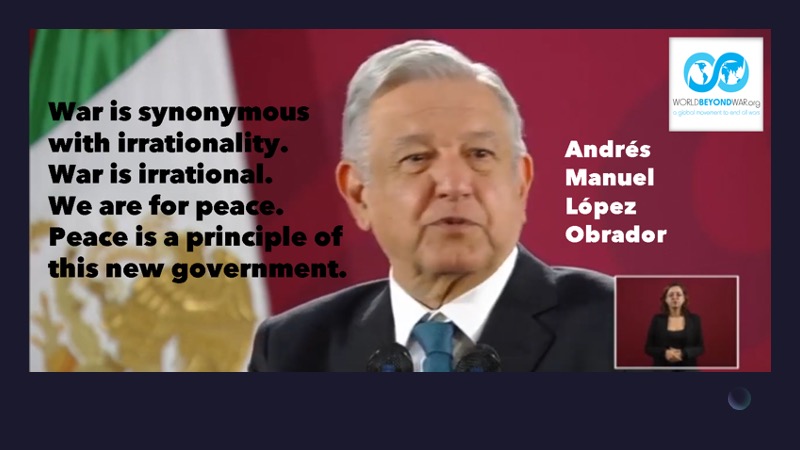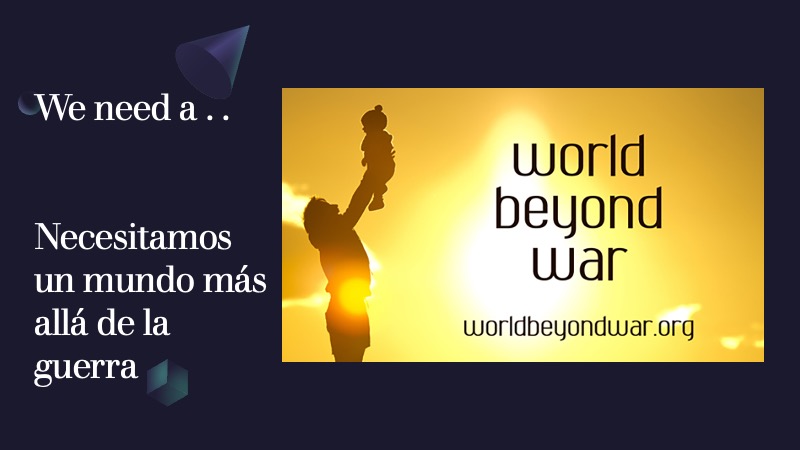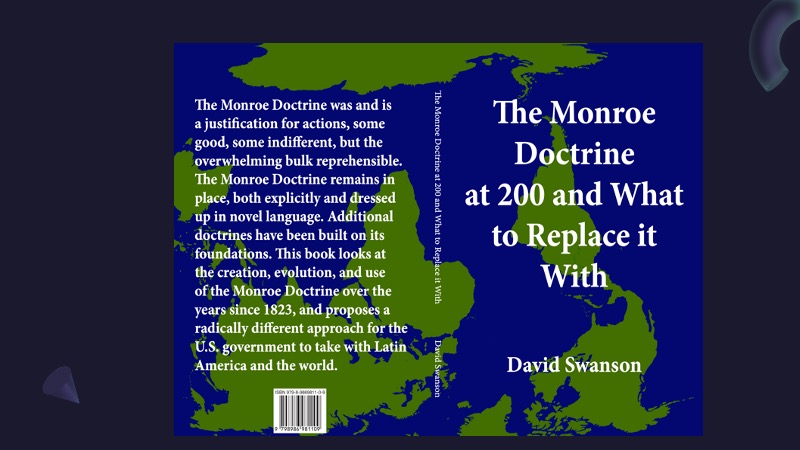A major step could be taken by the U.S. government through the simple abolition of one little rhetorical practice: hypocrisy. You want to be part of a “rules-based order”? Then join one! There is one out there waiting for you, and Latin America is leading it.
Of the United Nations’ 18 major human rights treaties, the United States is party to 5. The United States leads opposition to democratization of the United Nations and easily holds the record for use of the veto in the Security Council during the past 50 years.
The United States does not need to “reverse course and lead the world” as the common demand would have it on most topics where the United States is behaving destructively. The United States needs, on the contrary, to join the world and try to catch up with Latin America which has taken the lead on creating a better world. Two continents dominate the membership of the International Criminal Court and strive most seriously to uphold international law: Europe and the Americas south of Texas. Latin America leads the way in membership in the Treaty on the Prohibition of Nuclear Weapons. Virtually all of Latin America is part of a nuclear weapons free zone, out ahead of any other continent, apart from Australia.
Latin American nations join and uphold treaties as well or better than anywhere else on Earth. They have no nuclear, chemical, or biological weapons — despite having U.S. military bases. Only Brazil exports weapons and the amount is relatively tiny. Since 2014 in Havana, the over 30 member states of the Community of Latin American and Caribbean States have been bound by a Declaration of a Zone of Peace.

In 2019, AMLO rejected a proposal from then-U.S. President Trump for a joint war against drug dealers, proposing in the process the abolition of war:
“The worst that could be, the worst thing we could see, would be war. Those who have read about war, or those who have suffered from a war, know what war means. War is the opposite of politics. I have always said that politics was invented to avoid war. War is synonymous with irrationality. War is irrational. We are for peace. Peace is a principle of this new government.
Authoritarians have no place in this government that I represent. It should be written out 100 times as punishment: we declared war and it did not work. That is not an option. That strategy failed. We will not be a part of that. . . . Killing is not intelligence, which requires more than brute force.”
It’s one thing to say you oppose war. It’s another entirely to be placed in a situation in which many would tell you that war is the only option and use a superior option instead. Leading the way in demonstrating this wiser course is Latin America. In 1931, Chileans overthrew a dictator nonviolently. In 1933 and again in 1935, Cubans overthrew presidents using general strikes. In 1944, three dictators, Maximiliano Hernandez Martinez (El Salvador), Jorge Ubico (Guatemala), and Carlos Arroyo del Río (Ecuador) were ousted as a result of nonviolent civilian insurrections. In 1946, Haitians nonviolently overthrew a dictator. (Perhaps World War II and “good neighborism” gave Latin America a bit of a respite from the “aid” of its northern neighbor.) In 1957, Colombians nonviolently overthrew a dictator. In 1982 in Bolivia, people nonviolently prevented a military coup. In 1983, Mothers of the Plaza de Mayo won democratic reform and the return of (some of) their “disappeared” family members through nonviolent action. In 1984, Uruguayans ended a military government with a general strike. In 1987, the people of Argentina nonviolently prevented a military coup. In 1988, Chileans nonviolently overthrew the Pinochet regime. In 1992, Brazilians nonviolently drove out a corrupt president. In 2000, Peruvians nonviolently overthrew the dictator Alberto Fujimori. In 2005, Ecuadorians nonviolently ousted a corrupt president. In Ecuador, a community has for years used strategic nonviolent action and communication to turn back an armed takeover of land by a mining company. In 2015, Guatemalans compelled a corrupt president to resign. In Colombia, a community has claimed its land and largely removed itself from war. Another community in Mexico has been doing the same. In Canada, in recent years, indigenous people have used nonviolent action to prevent the armed installation of pipelines on their lands. The pink tide election results in recent years in Latin America are also the result of a great deal of nonviolent activism.
Latin America offers numerous innovative models to learn from and develop, including many indigenous societies living sustainably and peacefully, including the Zapatistas using largely and increasingly nonviolent activism to advance democratic and socialist ends, and including the example of Costa Rica abolishing its military, placing that military in a museum where it belongs, and being the better off for it.
Latin America also offers models for something that is badly needed for the Monroe Doctrine: a truth and reconciliation commission.
Latin American nations, despite Colombia’s partnership with NATO (unaltered apparently by its new government), have not been eager to join in a U.S.- and NATO-backed war between Ukraine and Russia, or to condemn or financially sanction only one side of it.

The task before the United States is to end its Monroe Doctrine, and to end it not only in Latin America but globally, and to not only end it but to replace it with the positive actions of joining the world as a law-abiding member, upholding the rule of international law, and cooperating on nuclear disarmament, environmental protection, disease epidemics, homelessness, and poverty. The Monroe Doctrine was never a law, and laws now in place forbid it. There’s nothing to be repealed or enacted. What’s needed is simply the sort of decent behavior that U.S. politicians increasingly pretend they’re already engaged in.
David Swanson is the author of the new book The Monroe Doctrine at 200 and What to Replace It With.










